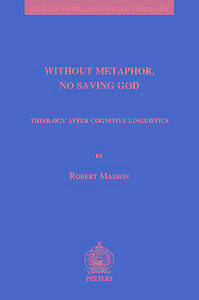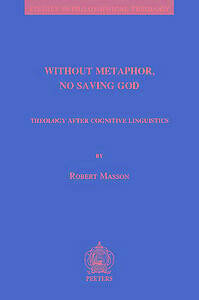
- Afhalen na 1 uur in een winkel met voorraad
- Gratis thuislevering in België vanaf € 30
- Ruim aanbod met 7 miljoen producten
- Afhalen na 1 uur in een winkel met voorraad
- Gratis thuislevering in België vanaf € 30
- Ruim aanbod met 7 miljoen producten
Zoeken
Omschrijving
Studies of conceptual and neural mapping in cognitive linguistics, while posing a fundamental challenge for religious belief, also suggest new ways of understanding how people conceptualize God and make theological inferences. This book, inspired by that research and attentive to the distinctive insights of Christian theology, elaborates an innovative explanation of God-talk, better able to credibly address confusion and controversies that trouble the church, academic theology, and broader culture. The first part analyzes both cognitive linguistics' challenge to standard theological depictions of metaphorical, analogous, symbolic, and literal language, and the discipline's promise for providing a more satisfactory account. The second half examines six case studies to illustrate how clarifying the conceptual mapping in God-talk and theological inferences provides a powerful tool for advancing religious understanding. The illustrations include the hypothesis that religion is an epiphenomenon of evolution, the so-called new atheism, Black theology, and controversies between theologians and Church authorities. This book has won the 2014 CTS Book Award.
Specificaties
Betrokkenen
- Auteur(s):
- Uitgeverij:
Inhoud
- Aantal bladzijden:
- 347
- Taal:
- Engels
- Reeks:
- Reeksnummer:
- nr. 54
Eigenschappen
- Productcode (EAN):
- 9789042930193
- Verschijningsdatum:
- 23/01/2014
- Uitvoering:
- Paperback
- Formaat:
- Trade paperback (VS)
- Afmetingen:
- 160 mm x 239 mm
- Gewicht:
- 566 g

Alleen bij Standaard Boekhandel
+ 116 punten op je klantenkaart van Standaard Boekhandel
Beoordelingen
We publiceren alleen reviews die voldoen aan de voorwaarden voor reviews. Bekijk onze voorwaarden voor reviews.











